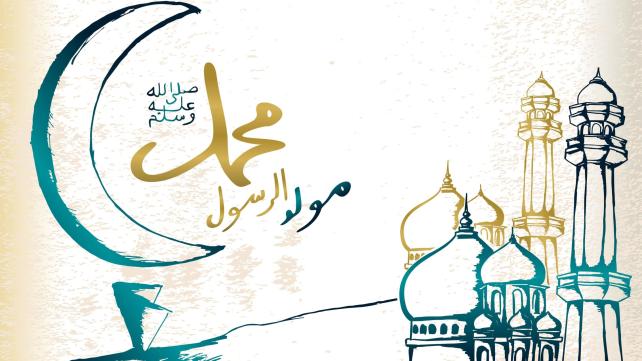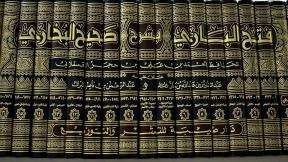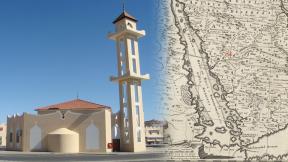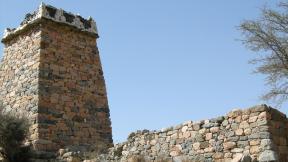
Muhammad’s Sword: A Jewish, Muslim, & Christian response to Former Pope Benedict XVI
God Almighty calls the Prophet Muhammad a mercy to the worlds. Literally several times a day, Muslims remember the Prophet, praising and praying for him. God’s peace and blessings be upon him.
In the Christian world, however, Muhammad’s sword is more well-known than Muhammad himself. God’s peace and blessings be upon him.
That is despite the fact that all the time the Prophet spent in battle can be put together as six days - out of a life of around 22,800 days.
The Prophet’s mission, as was the case for all the other prophets of God, was Al-Qist (Quran 57:25). He invited humanity to a Godly way of life, one in which people live with justice, fairness, and equity. He hated war. When he finally established his peace sanctuary (the Haram al-Shareef) in Madinah, the Makkans attacked. That is when God encouraged him to defend his sanctuary:
“Fighting is prescribed for you while you have a hatred for it. But it is possible that you hate a thing which is good for you, and that you love a thing which is bad for you. But Allah knoweth, and ye know not” (Quran 2:216).
So the Prophet did defend his peace sanctuary. About 354 people died on both sides according to scholar Muhammad Hamidullah. The Prophet himself did not kill anyone.
Meanwhile, the Western world, which gave us two world wars and killed about 60 million, continues to blame the Prophet for violence.
The Crusaders, the colonizing missionaries, and today’s Islamophobes have one common recurring theme and a frequently used line of attack on Prophet Muhammad, peace be upon him, Islam, and Muslims. That is the idea that Islam spread through violence and that Muslims are violent.
They fail to understand that the sword played little part in the success strategies of the Prophet.
Pope Benedict XVI’s Attack on the Prophet
Former Pope Benedict XVI was a distinguished Catholic theologian before he became the Pope. He knew his language and his theology well when he, as Pope, delivered remarks to an academic audience of the University of Regensburg, Germany.
The Pope used the occasion to criticize Islam, citing a 14th-century Christian emperor who said that Prophet Muhammad had brought the world “evil and inhuman” things. He claimed a huge difference between Christianity and Islam, suggesting that while Christianity is based on reason, Islam denies it. He also dismissed God’s command that there is no compulsion in faith as applicable only for a time when the Prophet was weak.
“Let there be no compulsion in religion: Truth stands out clear from Error: whoever rejects evil and believes in God has grasped the most trustworthy hand-hold, that never breaks. And God heareth and knoweth all things” (Quran 2:256).
The speech was delivered on Sept. 12, 2006. This was on the one-year anniversary of the publishing of the Danish cartoons of the Prophet Muhammad. These cartoons depicted the Prophet as a violent man. At the time, the troubling images of American soldiers’ torture of Iraqi prisoners at Abu Ghraib prison in Iraq were still fresh in the minds of many. The speech also came during the presidency of George W, Bush, when the terrible cycle of war-terror-Islamophobia was raging most violently.
Was the late Pope, a leading Catholic theologian, unaware of this context? Did the Vatican, as diplomatic as it is, think this was the perfect way to call Muslims into dialogue?
The Muslim world protested.
Morocco's King Mohammed recalled his ambassador to the Vatican over the remarks. Pakistan's parliament unanimously adopted a resolution condemning him for making derogatory comments about Islam and sought an apology from him. There were protests all around the world. Turkey's prime minister urged Pope Benedict to apologize and withdraw what he called “ugly remarks.”
No apology ever came. The Pope’s regrets came only regarding the protests, not his own words:
"I am deeply sorry for the reactions in some countries to a few passages of my address…[it] is an invitation to frank and sincere dialogue, with mutual respect."
The speech still exists on the Vatican’s website.
A Historic Islamic Response to the Pope
Within a month of the Pope’s lecture, 38 Islamic scholars from around the world delivered an answer to the Pope in an open letter. Then on October 13th, 2007 came the masterful Muslim response in the form of “A Common Word Between Us and You.”, The response embodies the Quranic message:
“The good deed and the evil deed are not alike. Repel the evil deed with one which is better. Then will he between whom and thee was hatred become as it were thy friend and intimate” (Quran 41:34)
I became one of the signatories of this document after its release.
Scholars of every Islamic denomination, from all the major Islamic countries in the world, signed this document addressed to the leaders of all Christianity and all Christians.
I don’t remember any other Islamic scholarly response that received such widespread coverage in the worldwide media, including the Western media.
It began in the name of God, saying:
Muslims and Christians together make up well over half of the world’s population. Without peace and justice between these two religious communities, there can be no meaningful peace in the world. The future of the world depends on peace between Muslims and Christians.
The basis for this peace and understanding already exists. It is part of the very foundational principles of both faiths: love of the One God, and love of the neighbour. These principles are found over and over again in the sacred texts of Islam and Christianity.
The Christian response
Three hundred Christian scholars signed a response written by Yale University scholars. It was published as an advertisement at the New York Times in October 2007. It stated that the “peaceful relations between Muslims and Christians stand as one of the central challenges of this century..."
There were many other responses which kept coming from different Christian denominations.
This document sparked something of a movement. Some universities, including Cambridge, Yale, and Georgetown, have developed it into courses and programs.
Muhammad’s Sword: A Jewish Response to the Pope
Before Islamic scholars responded, an Israeli Jewish man spoke up. His response was frank and direct. I hope the Pope had the opportunity to read it.
Uri Avnery was a member of the Jewish terrorist organization Irgun. Later, he became a member of Parliament and then spent the rest of his life as the founder of the Gush Shalom peace movement.
Within ten days of the Pope’s speech, he wrote on his website an article titled: Muhammad’s Sword.
He started out by quoting Jesus:
“Jesus said: "You will recognize them by their fruits." The treatment of other religions by Islam must be judged by a simple test: How did the Muslim rulers behave for more than a thousand years, when they had the power to ‘spread the faith by the sword?’
Avnery then gives examples of Greeks, Bulgarians, Serbs, Romanians, and Hungarians who remained under Ottoman control and served their empire, but remained Christians. He could have referred to India as well, where despite 900 years of Muslim rule, 85% of the population remained non-Muslim.
He then turned the table on the Pope’s thesis by giving examples of Catholics.
In 1099, the Crusaders conquered Jerusalem and massacred its Muslim and Jewish inhabitants indiscriminately, in the name of the gentle Jesus. At that time, 400 years into the occupation of Palestine by the Muslims, Christians were still the majority in the country. Throughout this long period, no effort was made to impose Islam on them. Only after the expulsion of the Crusaders from the country, did the majority of the inhabitants start to adopt the Arabic language and the Muslim faith - and they were the forefathers of most of today's Palestinians.
He then mentions that there is no evidence whatsoever of any attempt to impose Islam on the Jews. He mentions Muslim Spain where Muslim, Jewish, and Christian scholars worked together to create a Golden Age of knowledge, learning, and scientific advancement. He then asks: “How would this have been possible, had the Prophet decreed the ‘spreading of the faith by the sword?’”
“What happened afterwards is even more telling. When the Catholics re-conquered Spain from the Muslims, they instituted a reign of religious terror. The Jews and the Muslims were presented with a cruel choice: to become Christians, to be massacred, or to leave. And where did the hundreds of thousands of Jews, who refused to abandon their faith, escape? Almost all of them were received with open arms in the Muslim countries.The Sephardi ("Spanish") Jews settled all over the Muslim world, from Morocco in the west to Iraq in the east, from Bulgaria (then part of the Ottoman Empire) in the north to Sudan in the south. Nowhere were they persecuted. They knew nothing like the tortures of the Inquisition, the flames of the auto-da-fe, the pogroms, the terrible mass-expulsions that took place in almost all Christian countries, up to the Holocaust.”
I had the honor of visiting the small Jewish Museum in the old quarters of Istanbul. It preserved the history of those Spanish Jews who fled to Muslim lands. The museum at that time also had a letter by Albert Einstein to the Turkish government, asking them to save the lives of Jewish intellectuals from the Nazis. I am not sure if it was the original or a copy of it.
Avnery’s article on his website and Karen Armstrong’s article in the Time Magazine are both essential reading for all Christians, Muslims, and Jews aiming for a peaceful world.
“The Prophet…devoted his attention to building up a peaceful coalition of tribes and achieved victory by an ingenious and inspiring campaign of nonviolence. When he died in 632, he had almost single-handedly brought peace to war-torn Arabia.”








Add new comment